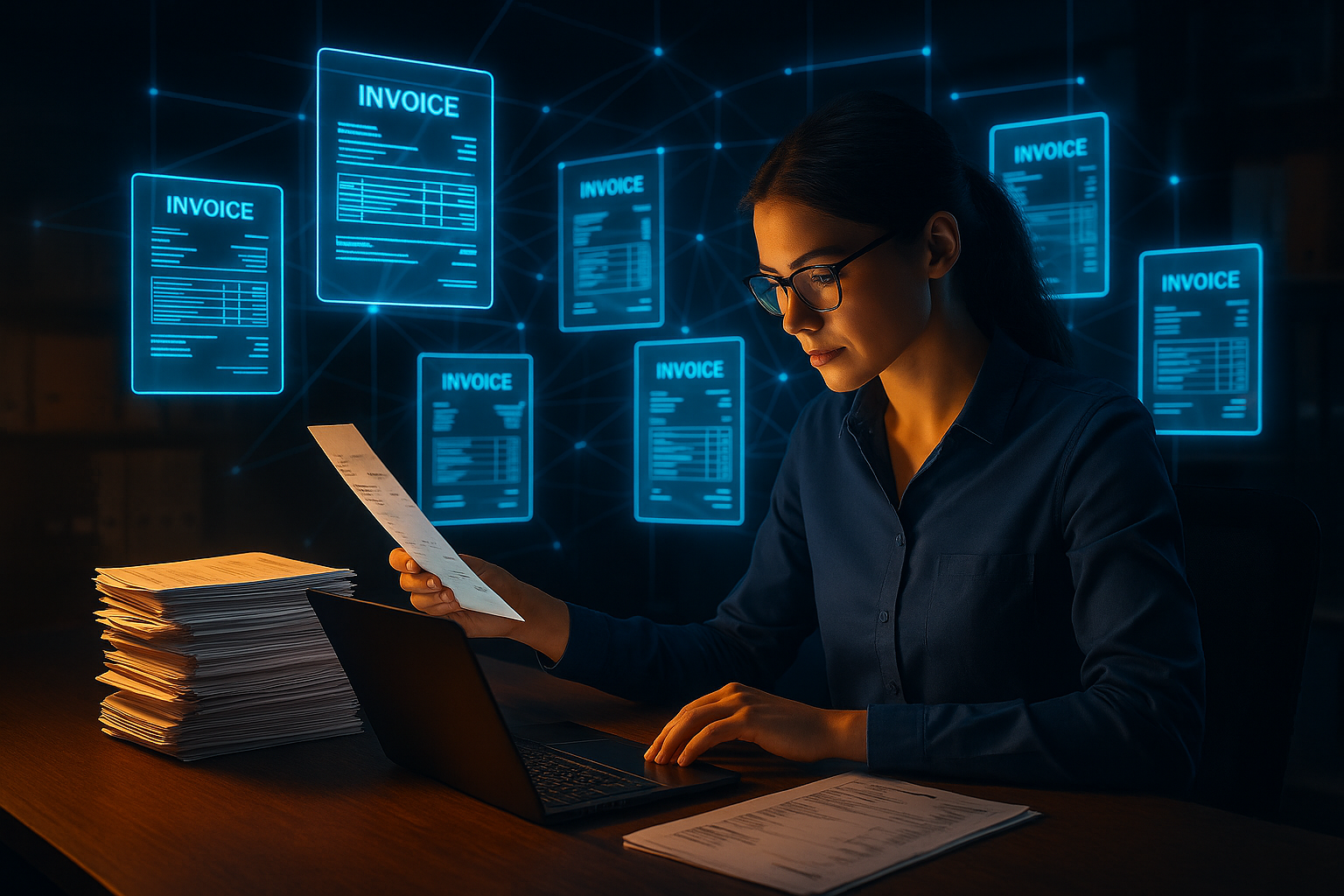"One company in two claims to have deployed an electronic invoicing procedure for their supplier and customer invoices", according to the OpinionWay survey for Quadient. The digitization of supplier invoices is becoming an unavoidable step, driven by the urgency of regulatory requirements, the rise of automation and the need to optimize the supply chain. This transformation is not just an IT project: it overturns document management, optimizes processes and poses new technical and human challenges.
The regulatory landscape is changing rapidly. Penalties for non-compliance are multiplying, while technological solutions are gaining in maturity. Docloop offers a clear, automated and interoperable vision to help companies in the sector make this strategic transition.
Invoice dematerialization involves transforming paper documents into structured, usable, compliant and often digitally signed electronic files. Since the tax reform undertaken between 2024 and 2026, France has been progressively imposing electronic invoicing on all companies, as part of a European initiative(directive EN 16931).
Dematerialization is not limited to digitization: it involves automatic integration into business systems (ERP, TMS), data extraction and validation, reconciliation with other documents (delivery notes, orders), and secure archiving.
Three levels of document digitization :
- Simple dematerialization: PDF scan without automated processing.
- Probative dematerialization: signed, archivable documents with legal value.
- Intelligent digitization: interconnected workflows, OCR, AI, interoperability.
In the transport sector, where document volumes are high (BL, CMR, invoices, chartering orders), this evolution makes exchanges more fluid, reduces errors and guarantees conformity.
Regulatory compliance
The 2024-2026 tax reform makes it compulsory for all French companies subject to VAT to issue and receive electronic invoices by 2026. PDF format will no longer suffice: only structured invoices (Factur-X, UBL, CII) will be accepted.
Formats must be produced by certified billing software, linked to an approved platform to ensure transmission and traceability.
Productivity and performance
Dematerialization automates manual tasks, reduces data entry errors, speeds up payments and improves supplier relations. Teams save time on document research, filing and tracking anomalies.
Other benefits
- Fraud prevention and enhanced traceability
- Reduced carbon footprint (less paper)
- Making the most of data as a strategic asset
Key figures 2025 :
- 87% of finance departments consider electronic invoicing a priority
- 45% of companies believe they are behind schedule in their compliance efforts
- 19% increase in paper-based tax audits by 2024 (source: DGFiP)
The process follows several stages:
- Reception (portal, e-mail, EDI)
- OCR reading / automatic data extraction
- Validation / reconciliation (3-way match)
- ERP or TMS integration
- Secure tax archiving
Key technologies include OCR, APIs, standardized formats (Factur-X, EDI) and certified platforms (Chorus Pro, PDP). Artificial intelligence makes extraction more reliable, detects anomalies and suggests personalized validation circuits.
Many invoices do not fall within the e-invoicing protocol, mainly intra-Community and extra-Community invoices. While e-invoicing platforms will be able to process French invoices, Docloop can handle all invoices that do not fall within the scope of these platforms.
In addition, electronic invoice platforms are only required to extract a minimal amount of data - for example, header and footer data, and totals. Docloop can extract more detailed data: tables, detail lines, multi-pages, etc.
Docloop offers a platform designed for transport and logistics, combining AI, OCR and native integrations with ERP, TMS and third-party platforms. Invoices are processed in a continuous flow, from receipt to archiving, with real-time synchronization and automatic reconciliation support (invoice-BL-order).
The dematerialization of invoices is an opportunity for digital transformation in a sector historically marked by paperwork. In 2025, the question will no longer be "if", but "when" and "how". Companies that anticipate these changes will strengthen their competitive edge: more fluid supplier relations, reduced risks, guaranteed compliance. Conversely, latecomers expose themselves to additional costs, tax adjustments and delays in document processing.
Docloop has established itself as a growth partner, offering an agile, intuitive and compliant solution that makes dematerialization an opportunity for innovation and sustainable performance.

%201.svg)











